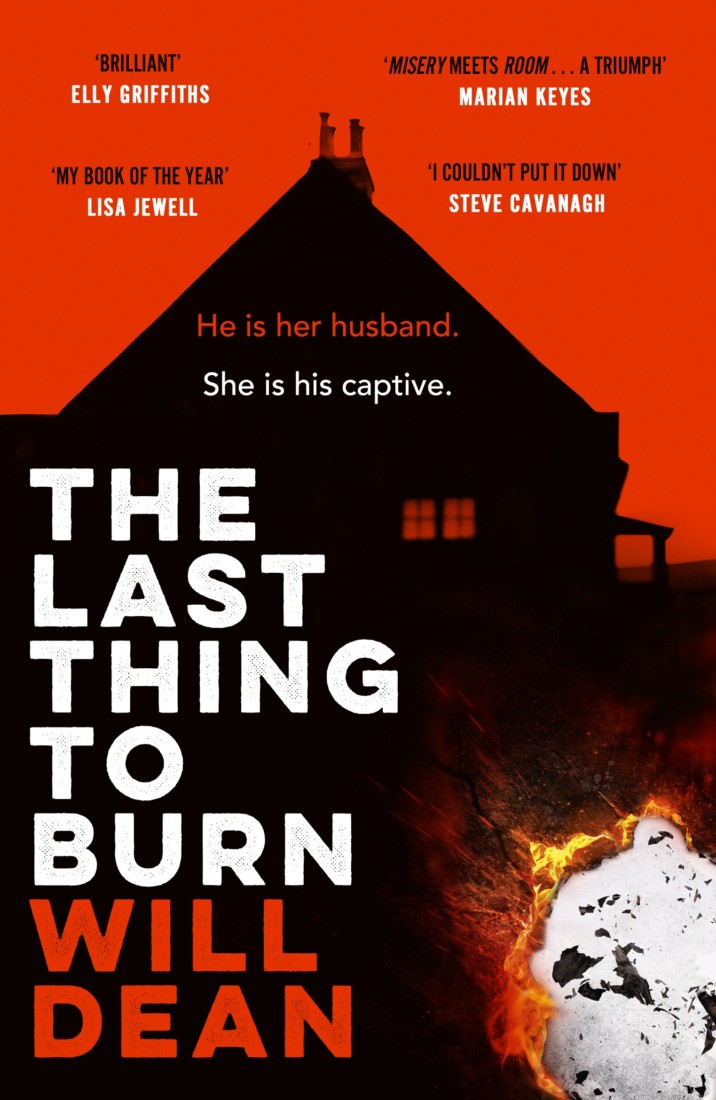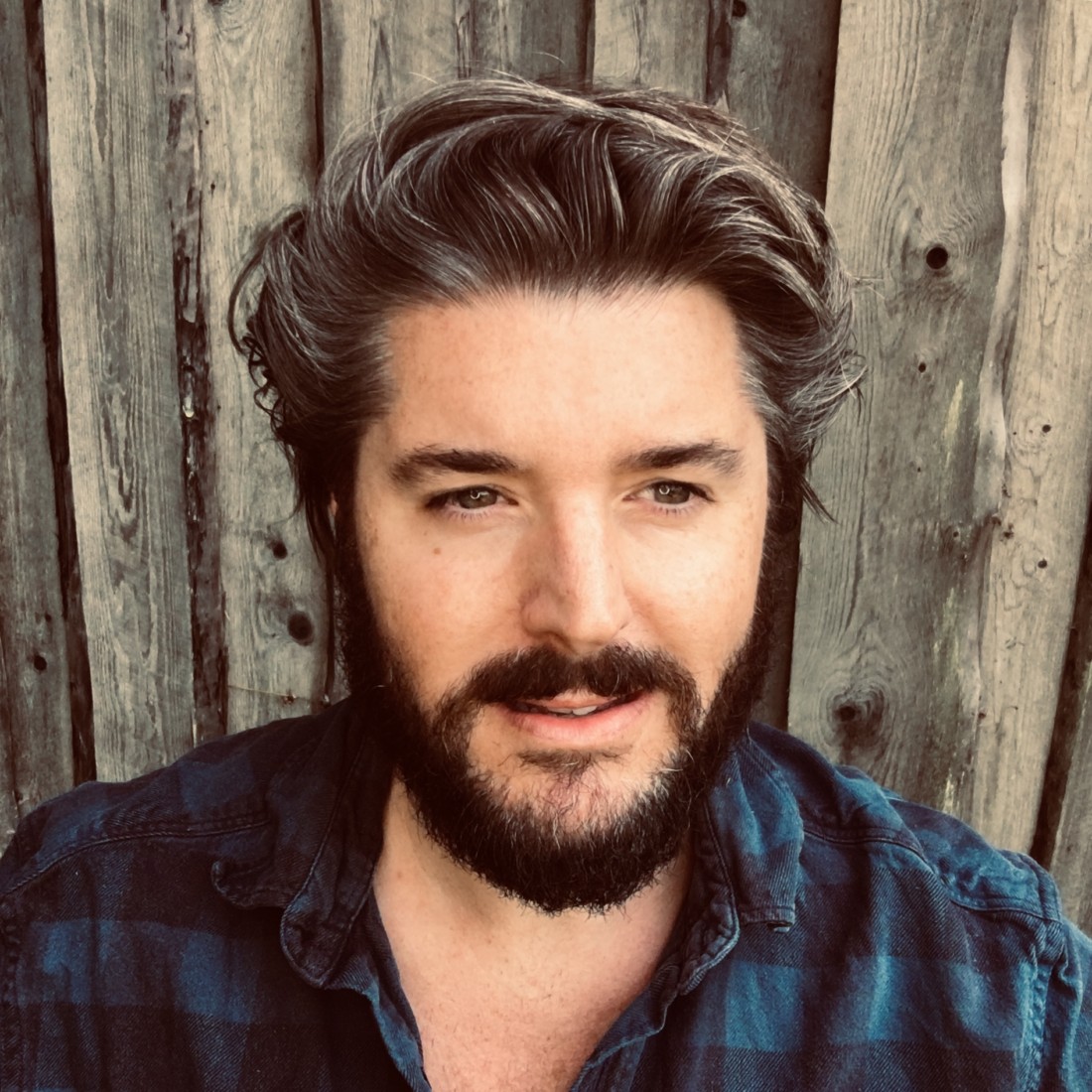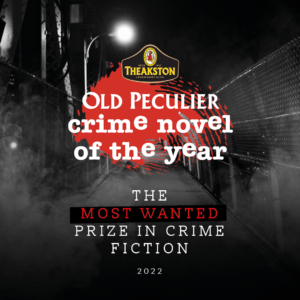
An Interview with Will Dean
We were thrilled to have the opportunity to ask Theakston Old Peculier Crime Novel of the Year Shortlistee Will Dean all of our burning questions.
Read on to find out Will’s writing quirks and what he’s most looking forward to at the Theakston Old Peculier Crime Writing Festival this year.
And don’t forget to cast your vote to decide who will take home the UK and Ireland’s most coveted crime fiction writing award.
Can you tell the readers a little about yourself?
My name is Will Dean. I’m a writer living in a remote Swedish forest with my family, Norwegian forest cat, and oversize St Bernard. I grew up in the rural East Midlands (the setting of The Last Thing to Burn) and although there were no books in my childhood home (I was the only reader) my mum would take me to the local mobile library truck. That’s where my love of reading began.
When did you start? What made you want to start?
First and foremost I’m a reader. Although I wrote short stories as a boy, I never expected to be a writer – I didn’t think that was an option open to someone like me. But then, in my thirties, I started to think I may have tales of my own to tell. I do it for the first draft experience. The heady, wild, fever-dream journey of telling yourself a story for the first time. If I was to never publish another book I’d still write a first draft each year. It’s a terrifying but addictive thing.
What’s the most difficult part of writing a crime book?
All of it. Because I read so much brilliant crime fiction, the prospect of writing each new book is daunting. The ideas come quite naturally. That’s not the difficult part. The first draft is draining but fun for me. But the rewriting (I rewrite a huge amount), edits, copy edits, proofreads can be exhausting. I don’t let it go out until I can’t improve it any more. That process can be arduous.
What does your typical writing day look like?
That depends on the stage I’m at. In the visualisation/research stage before I start a draft I’ll be reading, thinking, walking. Trying to picture the book like a film so I understand the feel of it (the atmosphere and mood). I write first drafts quickly (The Last Thing to Burn took 3 weeks, but the final book took 5 years). During those weeks I stay inside the protagonist’s head most of the time. I wake up thinking about the next scene. I write a chapter from about 9-11:30. I have lunch, thinking about the next scene. I write a chapter from about 1-3:30. I spend the evening thinking about the next scene. I go to sleep thinking about the next scene. Visualising it in detail, working it over in my head. I carry on like that until it’s done. First drafts feel like an exorcism. The book bursts out of me. That’s the creative flow state I’m hooked on (it’s not healthy). The rest of the year looks more like a 9-5 desk job.
What is your most unusual writing quirk?
I have a few. My first draft experience is quite extreme. Also: I don’t plot anything on paper before I start writing. I worry that if I write too many notes I’ll hang on to bad ideas. So each day (for about 4-6 months) I’ll visualise particular scenes. It’ll build up, layer-by-layer, until it feels authentic. If it feels real and three-dimensional to me then it might for readers. Despite living off-grid in a forest I write with the blinds pulled, facing a wall, with earplugs. I also maintain a ‘creeps list’: a notebook with snippets of overhead dialogue, names, scenes I come across that might be useful in future.
Which writers have influenced your writing the most?
Cormac McCarthy. The way he depicts nature. His realistic dialogue. The way he can make a small, quiet scene feel vital and epic. Other writers I admire a great deal, for various reasons, are: Gillian Flynn, Yaa Gyasi, Val McDermid, Colson Whitehead, Sarah Waters, Muriel Spark, Patricia Highsmith, Ian Rankin, Michel Faber, Ann Cleeves, Helen Macdonald, Stephen King, Kazuo Ishiguro, Lisa Jewell, Iain Banks, Kit de Waal, Ottessa Moshfegh.
What’s the best book you’ve read recently?
I’ve read many excellent books this year but the two that stand out are: Children of Men by PD James, and Winter’s Bone by Daniel Woodrell. Both astonishing.
What would winning the Theakston Old Peculiar Crime Writing Novel of the Year Award mean to you?
It’d mean the world. I owe all the previous winners so much. They taught me how to write.
Which event at the Theakston Old Peculiar Crime Writing Festival are you most looking forward to?
The New Blood panel is always a highlight. I love to see new writers coming through and I look forward to reading their work. In addition I’m excited to meet readers, booksellers, volunteers, bloggers, journalists, fellow writers, organisers, librarians and publishing folk. Harrogate is always the landmark event of the year for the crime fiction community and it’s great to catch up and talk books.

About the book:
He is her husband. She is his captive. Her husband calls her Jane. That is not her name. She lives in a small farm cottage, surrounded by vast, open fields. Everywhere she looks, there is space. But she is trapped. No one knows how she got to the UK: no one knows she is there. Visitors rarely come to the farm; if they do, she is never seen. Her husband records her every movement during the day. If he doesn’t like what he sees, she is punished. For a long time, escape seemed impossible. But now, something has changed. She has a reason to live and a reason to fight. Now, she is watching him, and waiting…
About the author:
Will Dean grew up in the East Midlands and had lived in nine different villages before the age of eighteen. After studying Law at the LSE and working in London, he settled in rural Sweden where he built a house in a boggy clearing at the centre of a vast elk forest, and it’s from this base that he compulsively reads and writes. His debut novel, Dark Pines, was selected for Zoe Ball’s Book Club, shortlisted for the Guardian Not the Booker prize and named a Daily Telegraph Book of the Year. Red Snow was published in January 2019 and won Best Independent Voice at the Amazon Publishing Readers’ Awards, 2019.


About the award:
The most prestigious award in crime fiction, the Theakston Old Peculier Crime Novel of The Year marks it’s eighteenth year in 2022.
The award celebrates excellence, originality, and the very best in crime fiction from UK and Irish authors. A highlight in the literary calendar, past winners include Denise Mina, Steve Cavanagh, Val McDermid and Chris Brookmyre. Awarded annually as part of Harrogate International Festivals’ Theakston Old Peculier Crime Writing Festival, the winner of the most wanted accolade in crime fiction receives a cheque for £3000, and an engraved oak beer cask, hand-carved by one of Britain’s last coopers from Theakstons Brewery.
The winner will be announced at the Theakston Old Peculier Crime Awards and Party on Thursday 21st July 2022.
Book your tickets to the Theakston Old Peculier Crime Novel of the Year Award Show here!

